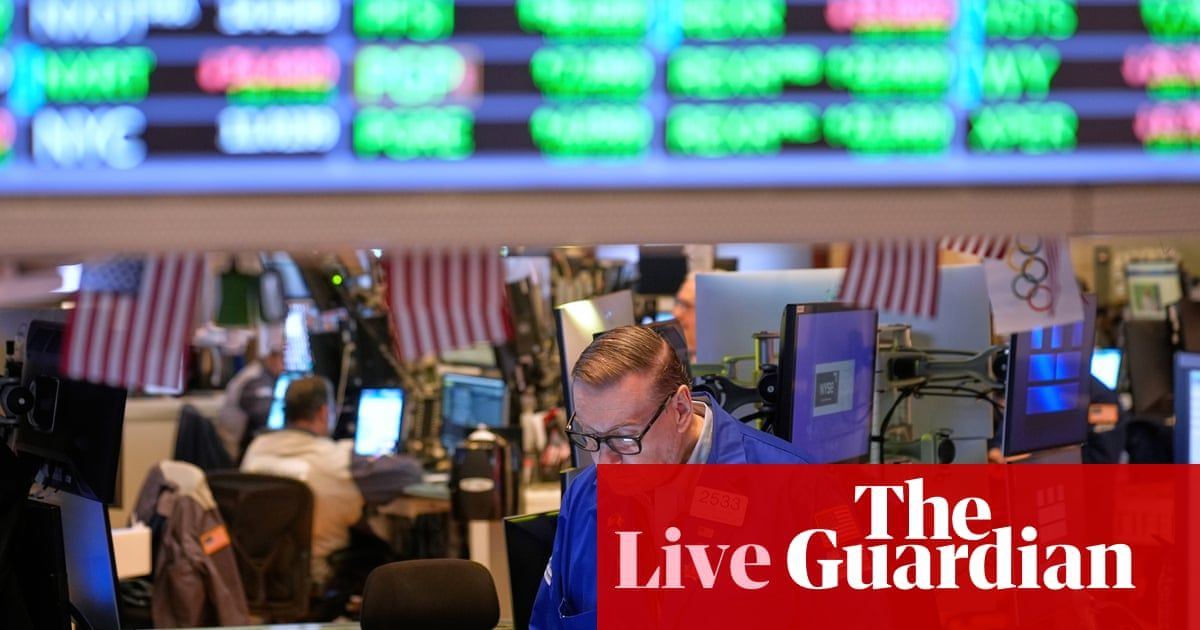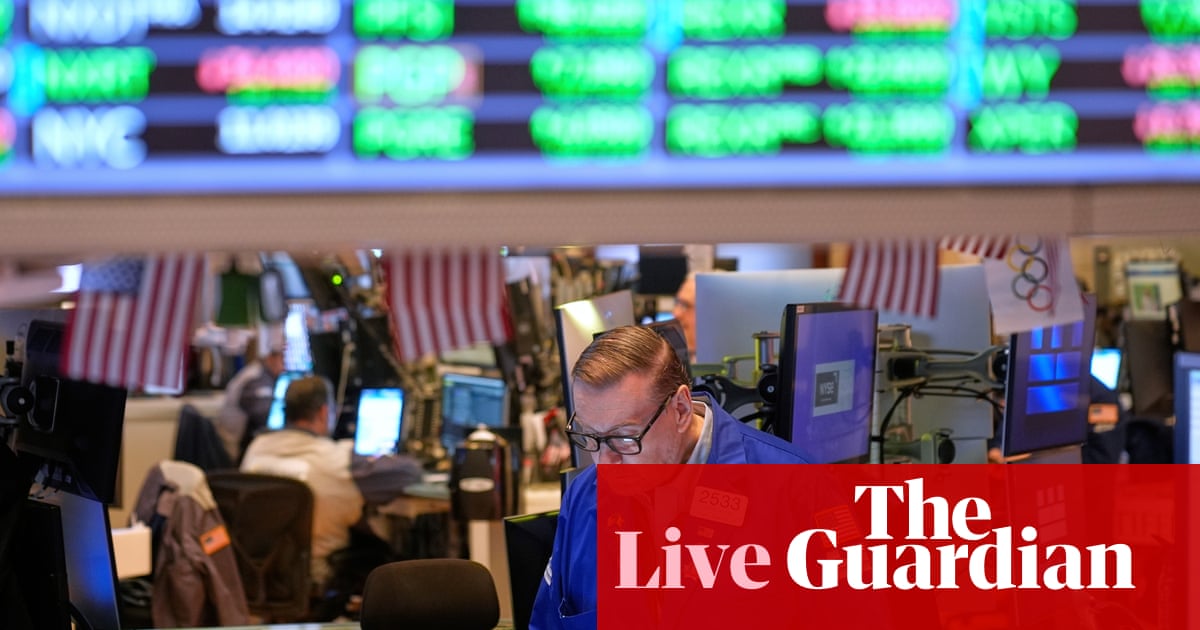
Wall Street dives as hopes wane for tariff delays; US says it will implement 104% tariff on China – business live

US stocks dived on Tuesday after yet another volatile trading day.
The S&P 500 fell 1.6% after wiping out an early gain of 4.1%, which had it on track for its best day in years. That brought the index nearly 19% below its record set in February.
The Dow Jones Industrial Average was down 683 points, or 1.8%, after giving up an earlier surge of 1,460 points.
The Nasdaq composite was down 3.2%.
Energy commodities gave up early gains to finish lower on Tuesday.
US crude fell 1.8% to $59.58 a barrel. Natural gas dropped 5.2%.
Shares of most oil and gas companies closed with losses.
Occidental Petroleum dropped 6.8%, ConocoPhillips fell 3.5% and Exxon slipped 2.2%.
Donald Trump has been speaking as he signed executive orders from the White House.
Trump claimed that the US is making $2bn a day from tariffs. He did not provide any details.
“The tariffs are on and money is pouring in at a level we’ve never seen,” he said.
“America is going to be very rich again very soon,” he said.
US stocks dived on Tuesday after yet another volatile trading day.
The S&P 500 fell 1.6% after wiping out an early gain of 4.1%, which had it on track for its best day in years. That brought the index nearly 19% below its record set in February.
The Dow Jones Industrial Average was down 683 points, or 1.8%, after giving up an earlier surge of 1,460 points.
The Nasdaq composite was down 3.2%.
The price of bitcoin fell to around $76,600 as it gave up an earlier gain, similar to stocks.
The US stock market is careening through a second straight day of stunning swings with Wall Street’s main indexes flitting between red and green, as investors’ hopes ebbed for US delays or concessions on tariffs ahead of a midnight deadline.
The S&P 500 lost an early gain of 4.1%, which had it on track for its best day in years, and slumped 1.7% with about an hour left in trading.
The Dow Jones Industrial Average lost 403 points, or 1%, after giving up its earlier surge of 1,460 points, while the Nasdaq composite was 2.4% lower, as of 3.13pm Eastern time.
Stocks globally had rallied much more earlier in the day, with indexes up 6% in Tokyo, 2.5% in Paris and 1.6% in Shanghai.
But even after those jumps, analysts had been warning to expect more swings up and down for financial markets not just in the days ahead but also the hours.
The UK health minister, Stephen Kinnock, said the global economic headwinds were “very turbulent” amid Donald Trump’s imposition of tariffs.
“It is very turbulent. Nobody benefits from a trade war,” he told Sky News on Tuesday.
We live in an incredibly deeply integrated global economy with very integrated supply chains and hugely interdependent commercial relationships, so nobody benefits from a trade war.
Keir Starmer and Rachel Reeves are actively considering nationalising British Steel in an escalation of plans first revealed in the Guardian last year.
The prime minister said all options were on the table to secure the future of the Scunthorpe plant, which is owned by the Chinese firm Jingye and employs about 3,500 people.
The possibility of nationalisation was first revealed in December but discussions have taken on fresh urgency with US tariffs and talks about a financial support package to move to less polluting technology having faltered.
The government has now been forced to consider more drastic options, ranging from nationalisation to buying materials to keep the blast furnaces going.
If the plant is stopped, it could be even less economical to reopen, with only about 48 hours to buy raw materials to keep it burning. The facility makes the steel for almost all UK rail tracks.
Whitehall sources said Starmer and Reeves were aligned in considering steel to be of “huge strategic importance” and that “all options are on the table, including nationalisation”. The chancellor spoke to union leaders involved in talks over the weekend and made clear her support for the steel industry.
Oil prices fell more than $1 a barrel on Tuesday, trading at four-year lows, as recession fears exacerbated by the trade conflict between the US and China offset a stock market rebound.
Brent futures were down $1.47, or 2.29%, at $62.74 a barrel at 1.13pm EDT (1713 GMT).
US West Texas Intermediate crude futures fell $1.26, or 2.08%, to $59.44.
The two benchmarks had slumped by 14% and 15%, respectively, on Monday after Donald Trump’s tariff announcement last week.
Thailand plans to send a high-ranking delegation to Washington to negotiate with their US counterparts over the new tariff policies.
The delegation will be led by the Thai deputy prime minister and finance minister, Pichai Chunhavajira.
Thailand is facing a 36% tariff under the new US rules. Bangkok’s plans reportedly include revising its import duties and amending non-trade barriers.
The UK should not “jump in with both feet” to retaliate against Donald Trump’s trade tariffs, Keir Starmer has said.
“My instinct is that we shouldn’t jump in with both feet to retaliate,” Starmer told members of parliamentary committee on Tuesday.
Obviously we have to keep our options on the table and do the preparatory work for retaliation if necessary. But I think that trying to negotiate an arrangement which mitigates the tariffs is better.
The tariffs are not a “temporary passing phase” but part of a “changing world order”, he added.